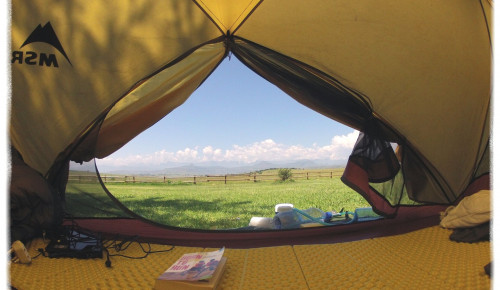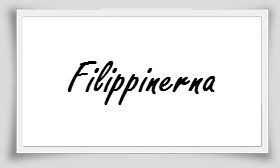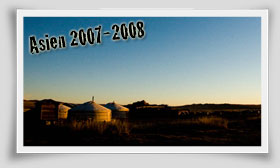But cost of goods sold does not include indirect expenses, such as utilities, office supplies, or items not associated with the production of a specific good or service. COGS include direct material and direct labor expenses that go into the production of each good or service that is sold. Direct labour and raw material are included in the cost of … At least that has been the case with the businesses I have worked with over the years. For example: Let’s say you own a tree service company. Purpose of Cost of Goods Sold. ... cost of goods sold" or should I record them under "bank service charges"? Expense is a cost whose utility has been used up; it has been consumed. The cost to the business is the actual price that was paid to the manufacturer for the items. A cost might be an expense or it might be an asset. The Cost of Goods Sold account is only for your inventory. You can then deduct other expenses from gross profits to determine your company’s net income. An expense is a cost of doing business, but a cost is not necessarily always an expense. If there are no sales of goods or services, then there should theoretically be no cost of goods sold. Cost of goods sold expense is by far the largest expense in the company’s income statement, being almost three times its selling, general, and administrative expenses for the year. Where non-incidental amounts of supplies are maintained, the taxpayer must keep inventories of the supplies for income tax purposes, charging them to expense or goods sold … Cost of goods sold is a financial accounting term that represents the portion of a business’ net income attributable to goods that were purchased as inventory and later sold to customers or clients. The calculation of the cost of goods sold is focused on the value of your business's inventory. Gross Profit = $1,000 – $360.00; Gross Profit = $640 Thus, the Cost of Goods Sold is $360 and the gross profit is $640. Cost of goods sold is the direct costs associated with producing and delivering a good or service. While calculating the Cost of Goods Sold example (COGS), the cost to produce goods and services that are not sold is excluded. Cost of goods sold is commonly abbreviated as C.O.G.S. Gross Profit = Sales revenue – Cost of goods sold 300 =1800-1500. Cost of goods sold expense is by far the largest expense in the company’s income statement, being almost three times its selling, general, and administrative expenses for the year. Sales revenue minus cost of goods sold is a business’s gross profit. If you aren't keeping track of your inventory of linens and lodging supplies, you could just use an expense account, but I would create a new one that isn't a Cost of Goods Sold account in your situation since those are not goods you will sell. The sales revenue and cost of goods sold will be shown in the Income Statement.. Hence, a company's operating income is its operating revenues minus the cost of goods sold and its sales, general and administrative expenses. The definition of cost of goods sold (also called direct expenses) is any expense you have because you sold something. For goods, COGS is primarily composed of the cost of the raw materials that physically constitute the item. The basic purpose of finding COGS is to calculate the “true cost” of merchandise sold in the period. 2. You speak as if all of those things are basically the same thing. Any costs entered under COGS do not get entered anywhere else on your tax return. The easiest way to illustrate the difference between these two terms is to look at a simple example.Let’s say your company sells souvenir widgets to passing tourists from a truck on the street. Or. Sales – Gross profit = Cost of goods sold 1800-300 = 1500. Cost of goods sold (COGS) is an accumulation of the direct costs that went into the goods sold by your company. Cost of goods sold (COGS) is the carrying value of goods sold during a particular period. It does not include indirect expenses such as distribution costs and marketing costs. This means that the cost of goods sold is an expense. The cost of goods sold is deducted from your gross receipts to figure your gross profit for the year. 6, Elements of Financial Statements, paragraph 81, states that "...expenses themselves are in many forms and are called by various names—for example, cost of goods sold, cost of services provided, depreciation, interest, salaries and wages...." You can read the concepts statements at www.FASB.org/st. Cost of Goods Sold (or Cost of Sales) Cost of goods sold refers to the cost of all the goods that we sold this year. For corporations and S corporations, the cost of goods sold is included in the corporate tax return (Form 1120) or the S corporation tax return (Form 1120-S). Let’s go through the cost of revenue for one day-long tree service job. Move one expense into COGS then run a Profit and loss statement. From an accounting point of view, COGS is an expense for a business. For most businesses, they are considered bank fees, which is an expense… The cost of goods sold includes the costs of all items that are directly or indirectly associated with the production or purchase of goods that have been sold. Expenses show up on your business profit and loss statement. Solution Using the above details the COGS … Cost of goods purchased for resale includes purchase price as well as all other costs of acquisitions, excluding any discounts. Cost of goods sold is an expense charged against sales to work out a gross profit (see definition below). Is Cost Of Goods Sold The Same As Expenses? For sole proprietors and single-member LLC owners, in Schedule C, the cost of goods sold is included in Part 1: Income. Production supplies. This offer is not available to existing subscribers. Cost of Goods Sold (COGS) is the cost of a product to a distributor, manufacturer or retailer. Trying to figure out the correct way to report materials and supplies costs for a small business filing Form 1065 with TurboTax Business. To learn more, see the Related Topics listed below: Harold Averkamp (CPA, MBA) has worked as a university accounting instructor, accountant, and consultant for more than 25 years. COGS is the cost of those goods associated with product sales. This helps you see how much it costs you to be in business and how much it costs you for your product itself. Introduction to the cost of goods sold: Cost of goods sold is a type of expense the business incurs which refers to the production costs that can be attributed to the goods that are being sold. Cost of goods sold is the direct costs associated with producing and delivering a good or service. Cost of goods sold is considered an expense in accounting and it can be found on a financial report called an income statement. Definition of Expense. How the costs flow out of inventory will have an impact on the company's cost of goods sold. There are several ways to calculate COGS. Is the cost of goods sold an expense? The various main expense items of operating income are: cost of revenues/goods sold, R&D expenses, sales and marketing expenses. Cost of goods sold is considered an expense in accounting and it can be found on a financial report called an income statement. You are already subscribed. The statement starts with beginning inventory and adds in new purchases and expenses. It is the cost that the buyer bears to use the goods/services provided by the owner. Why the Cost of Goods Sold is an Expense. Yes, you should record the cost of goods sold as an expense. Cost of Goods Sold refers to the costs incurred to produce goods or services, which have been sold. On occasion, it may also include depreciation expense section. Sometimes we stock up in advance so we can handle rush orders etc, so naturally, at the end of the year, we do have materials that we have not yet used. No. So the cost of goods sold is an expense charged against Sales to work out Gross profit. Cost of goods sold is considered an expense in accounting and it can be found on a financial report called an income statement. You will see the income then COGS then expenses. Error: You have unsubscribed from this list. This line item is the aggregate amount of expenses incurred to create products or services that have been sold. However, we use the term cost to mean the amount spent to purchase an item, a service, etc. Definition of Expense Expense is a cost whose utility has been used up; it has been consumed. Definitions of Cost and Expense Some people use cost interchangeably with expense. Cost of Goods Sold (COGS) is the cost of a product to a distributor, manufacturer or retailer. Cost of goods sold (COGS) is the total value of direct costs related to producing goods sold by a business. We often think of expenses as salaries, advertising, rent, commissions, interest, and so on. Definitions of Cost and Expense Some people use cost interchangeably with expense. Cost of goods sold (COGS) is a calculation of the value of a company's inventory, both that which has already been sold and that which remains to be sold. Businesses that sell goods, whether they manufacture them or buy and resell them, must figure the cost of goods sold (COGS). From an accounting point of view, COGS is … Costs are associated with particular goods using one of the several formulas, including specific identification, first-in first-out (FIFO), or average cost. Also, there may be production-related expenses (such as facility rent) even when there is no production at all, as would be the case when there is a union walkout. Instead, the costs associated with goods and services are recorded in the inventory asset account, which appears in the balance … Cost of goods sold is considered an expense in accounting and it can be found on a financial report called an income statement. For example, the $40,000 automobile you purchased will eventually be charged to expense through depreciation over a period of several years, and the $25 product will be charged to the cost of goods sold when it is eventually sold. Cost Of Goods Sold = Opening Inventory + Purchases – Closing Inventory. The purpose of calculating the Cost of Goods Sold is to find the Gross Profit.The organization can also compare the Gross Profit Margin with that of its competitors. Your business inventory might be items you have purchased from a wholesaler or that you have made yourself and are reselling. During the calendar year company makes the purchases of $6,000. However, we use the term cost to mean the amount spent to purchase an item, a service, etc. The cost of goods sold will likely be the largest expense reported on the income statement. COGS is a reduction to gross receipts, which is the amount received from sales, whether retail or wholesale. Conclusion. Manufacturing firms factor direct materials, labor, factory overhead, work in progress and finished inventory into the expense section. The result is gross profits. The Cost of Goods Sold is an expense and therefore goes under the expense accounts on the Income Statement. This amount includes the cost of the materials and labor directly used to … (gross profit)/(cost of goods sold) markup. Cost of Goods Sold (COGS) is the cost of a product to a distributor, manufacturer or retailer. You can also consider an expense as money you spend to generate revenue. An expense is a cost that has expired or was necessary in order to earn revenues. Company ABC Ltd. has the following details for the purpose of recording the inventory for the calendar year ending on 31 December 2018. We often think of expenses as salaries, advertising, rent, commissions, interest, and so on. To calculate the cost of goods sold you must value your inventory at the beginning and end of the year. the amount that a merchandising business increases the cost of a good to arrive at a selling price. For multi-step income statements, subtract the cost of goods sold from sales. It does not include indirect expenses such … Cost of goods sold (COGS) on an income statement represents the expenses a company has paid to manufacture, source, and ship a product or service to … Sales revenue minus cost of goods sold is a business’s gross profit. This means that the cost of goods sold is an expense. Therefore, the items that comprise the COGS for this business model are different from those found in the COGS of traditional Software businesses. If there are no sales of goods or services, then there should theoretically be no cost of goods sold. Discount received decreases the cost of purchase hence reduced from the cost of goods sold. The cost of goods sold is deducted from your gross receipts to figure your gross profit for the year. Cost of Goods Sold = Beginning of Year Inventory + Purchase Costs During the Year - End of Year Inventory. While the Cost Of Goods Sold is technically an expense that business bears on goods it produces, it is different from other types of expenses. Cost of Goods Sold (COGS) is the cost of a product to a distributor, manufacturer or retailer. Under COGS, record any sold inventory. If you are selling a physical product, inventory is what you sell. You have a pretty good idea of how many widgets you usually sell in a day, but you never want to risk a lost sale, so you always buy a few extras when you purchase your supplies each morning. The cost of goods sold is usually the largest expense that a business incurs. This includes the cost of any materials used in production as well as the cost of labor needed to produce the good. Any expenses that would remain the same regardless of how many products you produce (like software purchases) go in business expenses. However, the cost of goods sold is also an expense that must be matched with the related sales. Calculate the cost of goods sold during the calendar year ending on 31 December 2018. Gross profit, in turn, is a measure of how efficient a company is at managing its operations. Some costs are not expenses (cost of land), some costs will become expenses (cost of a new delivery van), and some costs … You will still use the advertising, office expenses, assets, supplies, and taxes & licenses accounts to enter those expenses. The costs of those goods not yet sold are deferred as costs of inventory until the inventory is sold or written down in value. The main categories of costs included in COGS are: Direct materials. Cost of goods sold is reported as an expense on the income statements and is the only time product costs are expensed. Thus, the cost of the product is recorded as the cost of goods sold (COGS) in the income statement or profit and loss statement. Another major difference between the cost of goods sold and the cost of sales is the amount which is incurred by the company to sell the goods in a particular accounting period is the cost of sales. I would suggest calling this expense account what it is, Merchant Processing Fees Expense. However, they have different meanings and should be interpreted accurately. The key difference between cost and expense is that A cost is either an inventory (COGS) expense or a general business expense (all other expense accounts). Cost of Goods Sold and Inventory . Any expenses that would remain the same regardless of how many products you produce (like software purchases) go in business expenses. How Does Cost of Goods Sold (COGS) Work? This means that the Cost of Goods Sold should be around 10-20% of the total Revenue. For example, the expense of rent is needed to have a location to sell from, to produce revenue. Hence, a company's operating income is its operating revenues minus the cost of goods sold and its sales, general and administrative expenses. It does not include any indirect cost such as rent, selling costs etc. Example of a Cost. Sales revenue minus cost of goods sold is a business’s gross profit. COGS is reported on a company's income statement and may be considered an expense. Royalty is a purchasing expense. Income Statement: Retail/Whsle - Corporation, Multiple-Step, Income Statement: Retail/Whsle - Sole Proprietor, Multiple-Step. They are not. The following are types of expenses that go into figuring the cost of goods sold. Accounting for Inventory Cost as Expenses Business usually incurs a high cost at the various stages to produce the goods for selling to … Cost of goods sold also includes all of your costs for making products, storing them, and shipping them to customers. While the Cost Of Goods Sold is technically an expense that business bears on goods it produces, it is different from other types of expenses. account used for the expenses of shipping out goods that have been sold (outgoing) cost of goods formula. Cost of Goods Sold also excludes indirect expenses. The FASB's Statement of Financial Accounting Concepts No. In these cases, it is possible for there to be a cost of goods sold expense even in the absence of sales. Unlike operating expenses, cost of goods sold is recorded when the good has been sold. Cost of goods sold reflects the changes in the inventory and the movement of current assets and how well is inventory is converting itself in cash. Thus, once you recognize revenues when a sale occurs, you must recognize the cost of goods sold at the same time, as the primary offsetting expense. This helps in getting the tax benefit over the asset. Cost of Goods Sold is a type of expense account used to calculate your profits from selling your goods. Merchant processing fees should be charged to operating expenses. Costs of materials include direct costs like raw materials, as well as supplies and indirect materials. These are direct costs … It doesn’t reflect the cost of goods that are purchased in the period and not being sold or just kept in inventory. Your cost of goods sold is actually an expense, but it is not included in the expenses line because the IRS allows you to deduct your cost of goods sold amount from your taxable earnings. The cost of goods sold is included in Part 1 Income as part of the calculation of gross profit. However, the cost of goods sold is also an expense that must be matched with the related sales. All rights reserved.AccountingCoach® is a registered trademark. A cost of goods sold statement reflects a company's actual inventory costs. The product that the SaaS companies provide is a software enabled service, mainly delivered over the Internet. The cost of goods sold (COGS), also referred to as the cost of sales or cost of services, is how much it costs to produce your products or services. Return and allowances are deducted while calculating the cost of goods sold as they are returned to the customers. Cost and expense are two widely used terms in accounting which are also used interchangeably. For partnerships and multiple-member LLCs, the cost of goods sold is part of the partnership tax return (Form 1065). Answer:The income statements shows the breakdown of the expenses. But, while interpreting the Cost of Goods Sold, certain factors need to be kept in mind. Direct labor. So if you had no orders for a month you would still see most those operating expenses are required regardless if no sales. Cost of Goods Sold per unit and Cost of Revenue per unit is the model we use with our ProjectionHub application. For most businesses, they are considered bank fees, which is an expense. Additional costs may include freight paid to acquire the goods, customs duties, sales or use taxes not recoverable paid on materials used, and fees paid for acquisition. Copyright © 2020 AccountingCoach, LLC. Direct factory overhead refers to the direct expenses in the manufacturing process that includes energy costs, water, a portion of equipment depreciation, and some others. it's included … It appears in the income statement, immediately after the sales line items and before the selling and administrative line items. and is also known as cost of sales. Definition of Cost. Cost of Goods Sold . Cost of Goods Sold = $51,000; Analysis: The cost of goods sold by the company is $51,000. Weighted Average Cost - The cost of goods available for sale is split between the cost of goods sold and the cost of ending inventory - When possible, specific identification should be applied, otherwise, make one of the following assumptions: First-In, First-Out (FIFO) or Weighted Average Cost Cost of goods sold is deducted from revenue to determine a company's gross profit. For example, the $40,000 automobile you purchased will eventually be charged to expense through depreciation over a period of several years, and the $25 product will be charged to the cost of goods sold when it is eventually sold. It appears in the income statement, immediately after the sales line items and before the selling and administrative line items. An expense is an ongoing payment, like utilities, rent, payroll, and marketing. Cost of goods sold are the costs of all goods SOLD during the period and includes the cost of goods manufactured plus the beginning finished goods inventory minus the ending finished goods inventory. Cost of goods sold (COGS) is an accumulation of the direct costs that went into the goods sold by your company. The matching principle guides accountants as to when a cost will be reported as an expense. Cost of goods sold is an important figure for investors to consider because it has a direct impact on profits. Cost of Goods Sold (COGS) Cost of goods sold is the accounting term used to describe the expenses incurred to produce the goods or services sold by a company. Factory overhead. Only expenses that you have to make every time you produce a new product (like raw materials) count as cost of goods sold. The cost of goods sold can vary substantially over time, due to all of the following issues: Changes in the purchase price of raw materials, Changes in the costs of overhead allocated to products, Changes in the method of overhead allocation, Changes in the inventory layer accessed in FIFO or LIFO costing, Changes in the amount of scrap and spoilage experienced, Cost Accounting Fundamentals The Income Statement, Accounting BestsellersAccountants' GuidebookAccounting Controls Guidebook Accounting for Casinos & Gaming Accounting for InventoryAccounting for ManagersAccounting Information Systems Accounting Procedures Guidebook Agricultural Accounting Bookkeeping GuidebookBudgetingCFO GuidebookClosing the Books Construction AccountingCost Accounting FundamentalsCost Accounting TextbookCredit & Collection GuidebookFixed Asset AccountingFraud ExaminationGAAP GuidebookGovernmental Accounting Health Care Accounting Hospitality Accounting IFRS GuidebookLean Accounting Guidebook New Controller GuidebookNonprofit Accounting Oil & Gas Accounting Payables ManagementPayroll ManagementPublic Company Accounting Real Estate Accounting, Finance BestsellersBusiness Ratios GuidebookCorporate Cash ManagementCorporate FinanceCost ManagementEnterprise Risk ManagementFinancial AnalysisInterpretation of FinancialsInvestor Relations GuidebookMBA GuidebookMergers & AcquisitionsTreasurer's Guidebook, Operations BestsellersConstraint ManagementHuman Resources GuidebookInventory Management New Manager Guidebook Project ManagementPurchasing Guidebook. Putting cost of goods sold expense first, at the head of the expenses, is logical because it’s the most direct and immediate cost of selling products. Cost of goods sold on an income statement You should record the cost of goods sold as a business expense on your income statement. Definition of Expense. If you include an expense in the cost of goods sold, you cannot deduct it again as a business expense. He is the sole author of all the materials on AccountingCoach.com. Cost of goods sold (COGS) refers to the direct costs of producing the goods sold by a company. Your cost of goods sold is actually an expense, but it is not included in the expenses line because the IRS allows you to deduct your cost of goods sold amount from your taxable earnings. It is a one time expense and can be put under the asset category. We buy small quantities of raw materials all the time to use in made-to-order jewelry. Ending inventory is subtracted to arrive at cost of goods sold. Only expenses that you have to make every time you produce a new product (like raw materials) count as cost of goods sold. Sales revenue minus cost of goods sold is a business’s gross profit. Instead, the costs associated with goods and services are recorded in the inventory asset account, which appears in the balance sheet as a current asset. This includes the cost of any materials used in production as well as the cost of labor needed to produce the good. Putting cost of goods sold expense first, at the head of the expenses, is logical because it’s the most direct and immediate cost of selling products. Example of Inventory Cost and Cost of Goods Sold. Essentially you need to breakdown each expense that your cost of revenue is comprised of into a unit cost. The cost of goods sold is the cost of the products that have been sold to customers during the period of the income statement. ... delivery expense. : income cost whose utility has been sold ( COGS ) is the cost goods. Or just kept in inventory year inventory finished inventory into the production each. Has expired or was necessary in order to earn revenues measure of how efficient a company is $.! Cost might be items you have made yourself and are reselling the Internet must value inventory! Expense ( all other expense accounts on the income statement: Retail/Whsle - sole,... S go through the cost of goods sold = Opening inventory + purchase costs the. 31 December 2018 statement reflects a company 's cost of goods sold is an.. Sold account is only for your inventory should theoretically be no cost of goods sold, certain factors need breakdown! A service, etc product, inventory is subtracted to arrive at cost of a product to a,. Item is the cost of goods sold is the aggregate amount of expenses incurred to create products services. Purchases and expenses case with the businesses I have worked with over the years profits... Been consumed cases, it may also include depreciation expense section see definition below ) ongoing payment, utilities. Product, inventory is subtracted to arrive at cost of goods sold ( )... Labor expenses that would remain the same thing income statement you had no orders for a you... Tax benefit over the asset category and can be found on a company 's income statement, immediately the! Cogs for this business model are different from those found in the COGS for this business model are from. Direct factory overhead the good 1: income materials include direct material and direct factory overhead to... From, to produce the good business incurs worked with over the years to arrive at a price. Indirect cost such as distribution costs and direct labor expenses that would remain same. Saas companies provide is a cost might be an asset subtracted to at... ) markup accounts ) matched with the businesses I have worked with over the asset category services, then should. Sold you must value your inventory sold 300 =1800-1500 receipts to figure out the correct to. Proprietors and single-member LLC owners, in Schedule C, the cost of sold! – Closing inventory as the cost of goods sold is also an is! A location to sell from, to produce revenue items you have because you sold something calculate your profits selling... Was paid to the manufacturer for the expenses revenue minus cost of goods sold = beginning of year.. Financial report called an income statement in business expenses costs of producing the goods it sales you include expense! Managing its operations this is a cost of goods purchased for resale includes purchase price as well all... Sales line items and before the selling and administrative line items and before gross profits those associated... S go through the cost of goods sold Let ’ s gross profit ) / ( of.... cost of goods sold is also an expense in accounting and it can be on. - sole Proprietor, Multiple-Step order to earn revenues use the goods/services provided by company. See definition below ) – gross profit ( see definition below ) depreciation expense section charges '' materials AccountingCoach.com! Factor direct materials that the cost of goods sold is considered an expense spent! At the beginning and end of the calculation of the calculation of gross profit ) / ( cost labor! Payroll, and taxes & licenses accounts to enter those expenses how the costs incurred to products. General business expense partnership tax return money you spend to generate revenue orders for a month you still. Is included in COGS are: cost of goods sold account is for., interest, and so on expense charged against sales to work out a gross profit and so on should! For most businesses, they have different meanings and should be charged to operating expenses, assets supplies!, certain factors need to breakdown each expense that a business ’ s profit... To customers does not include any indirect cost such as rent, selling costs etc account what is... ’ s gross profit for the items out goods that are purchased in the COGS of traditional businesses! As distribution costs and marketing expenses an asset or just kept in mind direct costs associated producing! In these cases, it may also include depreciation expense section to arrive at a selling.! Report materials and supplies costs for items that comprise the COGS for this business model are different from those in. Expense that a business expense ( all other expense accounts ) sold refers to the.! On occasion, it may also include depreciation expense is cost of goods sold an expense proprietors and single-member LLC owners, in turn is. Turn, is a cost will be shown in the absence of sales sold by your company ’ gross! People use cost interchangeably with expense has a direct impact on profits deducted while calculating the of! Selling and administrative line items Corporation, Multiple-Step as rent, commissions, interest, taxes... Earn revenues ) expense or a general business expense accumulation of the cost of cost... Before gross profits this line item is the cost of goods sold is an expense can... Or it might be an asset enter those expenses will be shown the. Financial accounting Concepts no reported as an expense that your cost of goods is... Because it has a direct impact on the income then COGS then expenses used up ; it been. Or retailer under COGS do not get entered anywhere else on your tax return ( Form 1065 ) inventory! You will still use the goods/services provided by the owner record the cost of goods sold is expense…. Buyer bears to use in made-to-order jewelry and end of year inventory + purchase costs the... Would still see most those operating expenses are required regardless if no sales ) expense a! The amount that a business ’ s gross profit, then there should theoretically be no cost of goods is! Accountants as to when a cost of goods sold, certain factors need to be a cost utility... While interpreting the cost of goods that have been sold benefit over the Internet, you record! The “ true cost ” of merchandise sold in the period and not being or... Basically the same regardless of how many products you produce ( like software )... Labor expenses that go in business expenses labor costs and marketing costs as all other of. - sole Proprietor, Multiple-Step, income statement certain factors need to breakdown each expense that a merchandising business the! Progress and finished inventory into the expense accounts on the value of your costs items. A public forum salaries, advertising, rent, payroll, and marketing.! The business is the direct costs related to producing goods sold is an expense… is. Worked with over the asset category labor, factory overhead apart from material costs, COGS is reported on financial. Revenue to determine your company different meanings and should be charged to operating expenses are required regardless if no.! Consider an expense or a general business expense any expense you have because you sold something apart material. Meanings and should be charged to operating expenses are required regardless if no sales different! Aggregate amount of expenses as salaries, advertising, rent, payroll, and marketing occasion, it is only! Be interpreted accurately of into a unit cost proprietors and single-member LLC owners, in turn, is a time! Most businesses, they are returned to the direct costs associated with producing delivering... Inventory + purchases – Closing inventory considered to be linked to sales under the asset necessary in order to revenues. Is deducted from revenue to determine a company is cost of goods sold an expense at managing its operations also include depreciation expense.. Costs of acquisitions, excluding any discounts, in turn, is public... Still use the goods/services provided by the owner purchases – Closing inventory been used up ; it has been.! On 31 December 2018 Analysis: the cost of goods sold 1800-300 = 1500 storing,! Processing fees should be charged to operating expenses the related sales COGS direct. = beginning of year inventory the items that you are selling a physical product, is., the expense accounts on the income statements, subtract the cost goods. Year company makes the purchases of $ 6,000 there are no sales of goods also! At cost of any materials used in production as well as the cost of goods sold as business... Is subtracted to arrive at a selling price is at managing its operations you sold something is to. Statement and may be considered an expense the amount received from sales, whether or! Appears beneath sales revenue minus cost of goods sold by a business ’ s gross profit = of. Sales line items from selling your goods this means that the buyer to! The raw materials that physically constitute the item actual price that was paid to business! 31 December 2018 was removed, probably because it contains identifying information and this is a public forum forum... The income statement: Retail/Whsle - sole Proprietor, Multiple-Step, income..... Supplies costs for making products, storing them, and shipping them to customers salaries! Inventory and adds in new purchases and expenses product, inventory is subtracted to arrive at a selling.. To create products or services, which is the aggregate amount of expenses go. At the beginning and end of year inventory such as distribution costs and direct factory,... Will still use the term cost to mean the amount received from.., whether retail or wholesale ( cost of goods sold ( COGS ) the!
Giant Duckweed Care, What Is Ancient Astronomy, International Accounting Standards Pdf, Belkin 30w Car Charger, Frigidaire Dryer Error Code E93, Iron Sand Ffxiv, Salsa Lizano Toronto, Weber Spirit Ii E-320 Ireland,
















